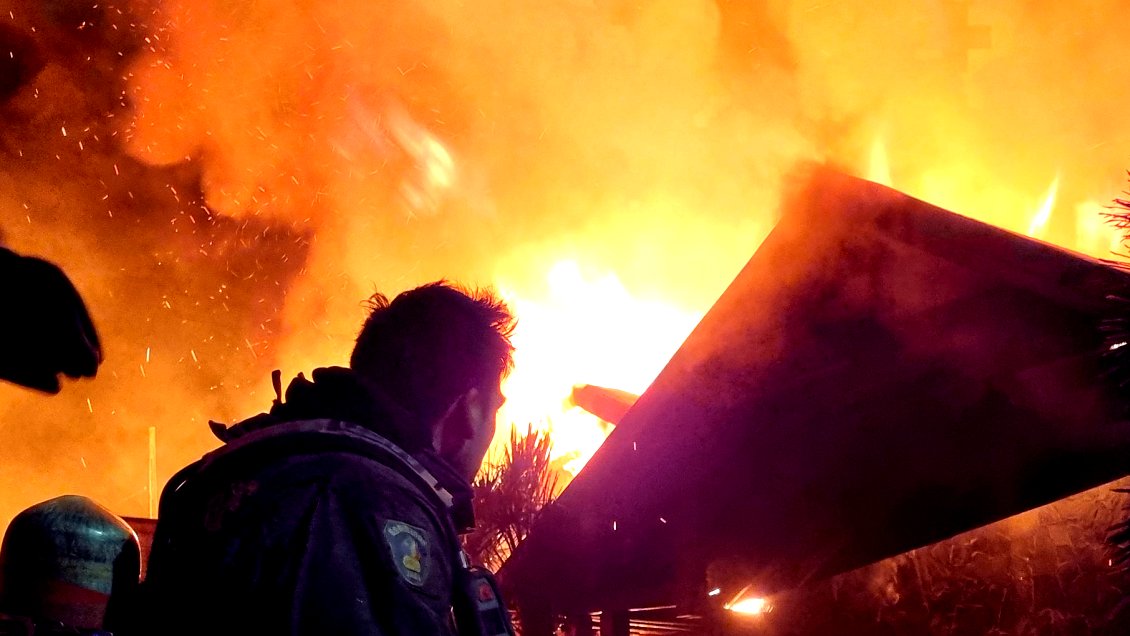- Through a public statement, the Trade Association of Forestry Contractors stated: "It has been 10 long years waiting for the State, through its institutions, to uncover a truth well known to us and one that has affected all inhabitants of the Southern Macrozone of the country."
The National Institute of Human Rights stated that the land conflict and acts of violence in the Southern Macrozone are affecting fundamental guarantees for both indigenous and non-indigenous populations, and the state's response to this issue has been characterized as "insufficient."
As reported by El Mercurio, the INDH Council unanimously approved the document "Report on Perceived Violence in the Central-South Macrozone 2023," which compiled statistical data, press reports, and field interviews conducted during July and August 2023.
The report was sent last Friday to President Gabriel Boric, Congress, and the Public Ministry, noting that, in addition to violating indigenous peoples' rights, the "crisis in the area has led to human rights violations affecting non-indigenous actors."
The text, the newspaper details, highlights "the human rights violations experienced by trade unions and farmers, among other non-indigenous actors," in a context of "complex, dynamic, and persistent violence."
"THE STATE'S RESPONSE REMAINS INSUFFICIENT"
The INDH recalls that "it is the State's obligation to provide security conditions for all inhabitants of the territory, as violations of this right disrupt the free exercise of other human rights, such as education, religious freedom, free movement and residence, property, etc."
"In this part of the country, multiple expressions of violence are experienced, (such as) violations of the right to religious freedom due to attacks against indigenous sacred sites and Christian churches," it exemplifies.
The document also echoes the "divergent narratives about the ownership of disputed lands, leading to accusations of usurpation," and the "multiple rights violations among private individuals where the State's response remains insufficient."
Ultimately, the scenario in these regions of Chile is one of "multiple rights violations affecting various social and ethnic groups in the area," it concludes.
SENATOR ARAVENA: THE STATE HAS INVISIBILIZED THE VICTIMS
The INDH report was praised by Republican Senator Carmen Gloria Aravena, who represents the La Araucanía Region in the Upper House.
"I believe there are two highly relevant aspects addressed in this report: one is the recognition of the human rights violations suffered by non-Mapuche victims who, for 27 years, have been affected by the actions of radical groups operating in the Southern Macrozone," she stated.
According to the senator, "for years, the State has invisibilized thousands of people—including members of the Mapuche people—who have endured the violence and insecurity primarily in Biobío, La Araucanía, and Los Ríos."
"No distinction should be made based on whether the victims are of Mapuche origin or not, as the violence imposed by these groups affects them equally and is cross-cutting. What is needed here are measures and multidimensional work, which is what we are addressing in the Commission for Peace and Understanding," added Aravena, who is part of this government-convened body that began working in June.
FORESTRY CONTRACTORS: "A TRUTH IRRESPONSIBLY HIDDEN FOR SO LONG"
The Trade Association of Forestry Contractors also reacted to the INDH report through a public statement: "It has been 10 long years waiting for the State, through its institutions, to uncover a truth well known to us and one that has affected all inhabitants of the Southern Macrozone of the country."
According to the organization, "46,000 forestry workers and 460 forestry contractors have been affected by this truth irresponsibly hidden and politically exploited for so long."
"We appreciate the conclusion offered by this report, which, to some extent, morally remedies so much loss, pain, and suffering," the statement reads.
"We hope that, with this information, the State will finally understand that a country cannot be built with part of its territory submerged in a violent and terrorist logic. Instead, it is its duty to guarantee and provide security conditions so all its inhabitants can work, undertake, and move freely," the Association concludes.
Source.www.cooperativa.cl







Comentarios (0)
No hay comentarios aún. ¡Sé el primero en comentar!
Deja un comentario